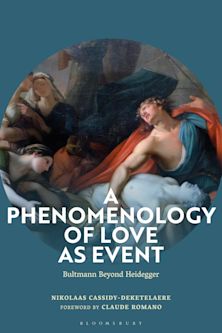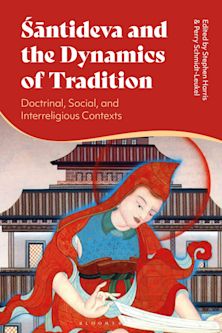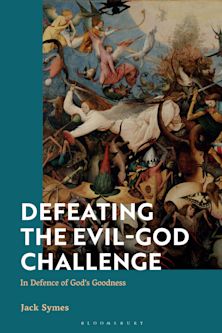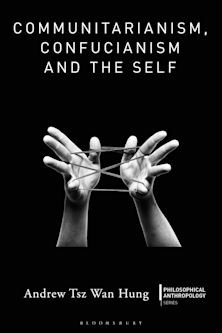- Home
- ACADEMIC
- Philosophy
- Philosophy of Religion
- The Purpose of Life
For information on how we process your data, read our Privacy Policy
Thank you. We will email you when this book is available to order
You must sign in to add this item to your wishlist. Please sign in or create an account
Description
What does philosophy have to say on the question of the meaning of life? This is one of the founding questions of philosophy and has remained a central problem for philosophers from antiquity through to the Middle Ages and modern period.
It may surprise some readers that there has, in fact, been a good deal of agreement on the answer to this question: the meaning of life is happiness.
The Purpose of Life is a serious but engaging exploration and defense of this answer. The central idea that shapes The Purpose of Life is Augustine's assertion that "It is the decided opinion of all who use their brains that all men desire to be happy." In working through the ramifications of this answer, Stewart Goetz provides a survey of the debates surrounding life's meaning, from both theists and atheists alike.
Table of Contents
Chapter 1: Clarifying the Question
What is the Meaning of Life?
Clarifying Questions and Answers to Them
Perfect Happiness
A Plausible Understanding of "What is the meaning of life?"
A Plausible Understanding of "What makes life meaningful?"
Euthyphro's Objection
A Plausible Understanding of "Is life meaningful?"
This World, the Afterlife, and the Soul
Conclusion
Addendum
Chapter 2: Perfect Happiness and Its Atheist Critics
Perfect Happiness Is Not the Meaning of Life
Perfect Happiness: Setting the Bar too High
"Why Should I Be Moral?"
A Section Not Strictly Necessary
"Why Should I Be Moral?" again
Chapter 3: Perfect Happiness and Its Theist Critics
The Problem of Pleasure
Pleasure Cannot Be Intrinsically Good: Religious Concerns
Pleasure Cannot Be Intrinsically Good: Philosophical Concerns
Is Pleasure Present in Everything We Enjoy?
Conclusion
Chapter 4: Purposeful Explanation and Naturalism
A Brief Overview
Looking Backward versus Looking Forward
The Nature of Purposeful Explanation
Naturalism
The Causal Closure Principle
Science Is Not the Problem
Survival or Pleasure: What Explains What?
Evolution versus Creation
Addendum
Chapter 5: The Problem of Evil
Skeptical Theism, the Purpose of Life, and the Problem of Evil
Choice and Life Plans
Life Plans and Perfect Happiness
A Theodicy
The Plausibility of My Theodicy
Not So Fast!
A Skeptical Theist Turned Theodicist
Justice as an Organic Unity
Tying Together Some Loose Ends
The Experience of Evil by Beasts
Addendum
Chapter 6: Conclusion
Bibliography
Index
Product details
| Published | Jul 12 2012 |
|---|---|
| Format | Ebook (PDF) |
| Edition | 1st |
| Extent | 192 |
| ISBN | 9781441157058 |
| Imprint | Continuum |
| Publisher | Bloomsbury Publishing |
About the contributors
Reviews
-
Stewart Goetz's remarkable book, The Purpose of Life: A Theistic Perspective, provides a rigorous analytic treatment of a theistic theory of the meaning of life that addresses the best arguments of its nontheistic detractors. Beyond that self-described goal, Goetz also mounts a direct assault on naturalism, defends his specific understanding of life's meaning against the objections of his theistic friends, and presents a kind of free will theodicy. ... [P]acked full of insights and arguments that would benefit a readership that ranges from advanced undergraduates to the most learned theologian or philosopher.
Jordan Wessling, Fuller Theological Seminary, USA, The Journal of Religion
-
The Purpose of Life: A Theistic Perspective makes an important contribution to the growing discussion within analytic philosophy over life's meaning. Goetz covers a lot of interesting philosophical territory to make his case-value theory, naturalism, reductionism, the problem of evil, even heaven and hell. His choice of interlocutors is equally interesting: St. Augustine, Bertrand Russell, C.S. Lewis, Daniel Dennett, Thomas Nagel and Alvin Plantinga to name a few. Those interested in a monograph-length discussion of life's meaning from a theistic perspective will want to read this book. I hope that Goetz's contribution motivates others to work further (or for the first time) in this area.
Joshua Seachris, University of Notre Dame, Faith and Philosophy, Vol. 31, No. 2, 2014
-
A very stimulating and readable defence of a theistic hedonistic understanding of happiness as the purpose of life; it should be of interest to philosophers of religion and value theorists at every level, from the undergraduate upwards.
T. J. Mawson, Fellow and Tutor in Philosophy, University of Oxford, UK



































